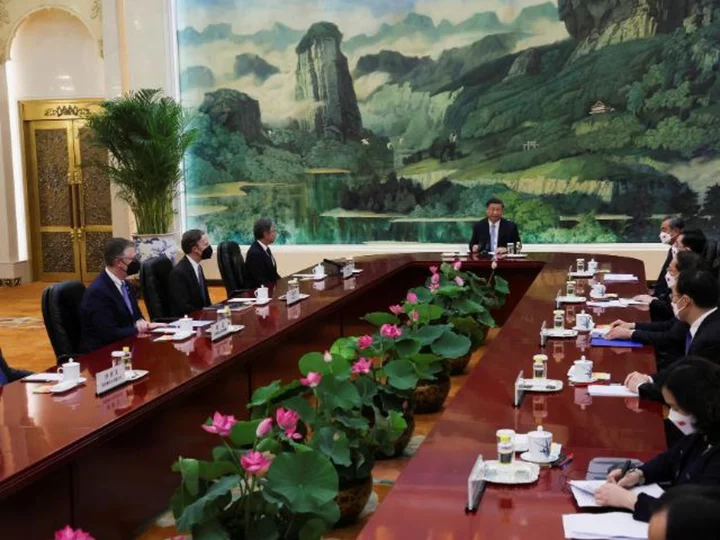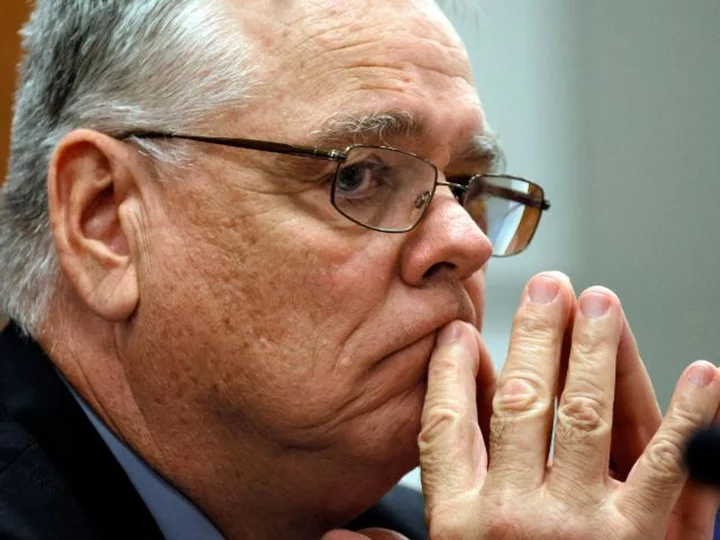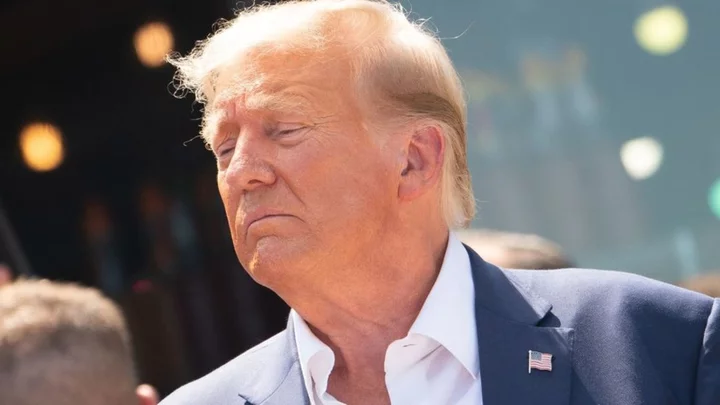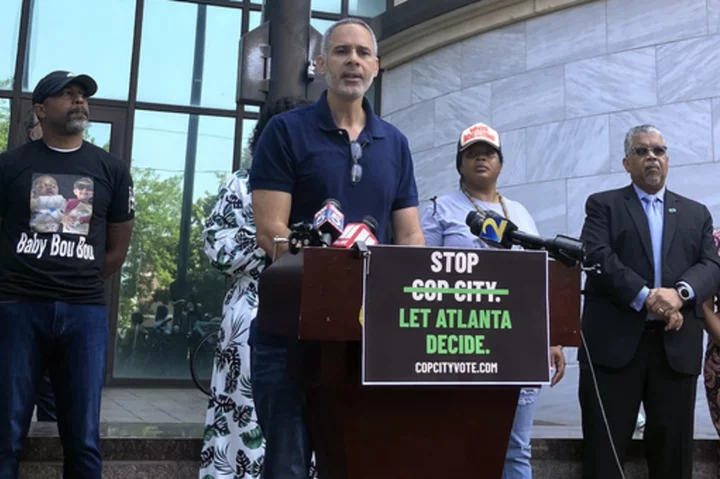A visit of America's top diplomat to China this week ended with both Washington and Beijing expressing hope that this was a key first step to getting their broken relationship back on track.
But beneath those positive signals, the two-day visit to Beijing from US Secretary of State Antony Blinken highlighted another reality: a wide and dangerous gulf between the two powers.
On fundamental and pressing issues, such as whether the two countries are competing with one another, if there is mutual respect in the relationship, and how to mitigate a chance of conflict between them, the US and China still remain miles apart.
Finding common ground between the two sides -- one, an authoritarian country keen to expand its global sway, and the other, a democratic superpower with sweeping international influence -- was never going to be easy.
The fact that Blinken's visit went ahead after a months-long delay due to a dispute over a Chinese surveillance balloon and then culminated in a meeting Monday with Chinese leader Xi Jinping, was widely seen as a positive step to stabilizing ties.
The timing of the visit, which followed two close encounters between Chinese and American armed forces in Asia in recent weeks, underscored the urgency of talking.
But the roughly 11 hours that the American envoy spent with senior Chinese officials also revealed some of the key fault lines that make navigating the relationship increasingly difficult -- even with the dialogue that both sides pledged to support.
Talking past each other
Xi highlighted one of the starkest areas where the US and China cannot -- at least in their official positions -- see eye-to-eye.
Positioned at the head of a table where the rest of the two delegations, including Blinken, sat facing each other on either side, Xi laid out his view that "major-country competition does not represent the trend of the times."
"China respects US interests and does not seek to challenge or displace the United States. In the same vein, the United States needs to respect China and must not hurt China's legitimate rights and interests," he said.
That stance, that the US and China are not in competition with each other, sharply diverges from the American view, and indeed, implications for China's own foreign policy.
Washington has been clear that it has entered into a phase of competition with China -- with Blinken laying out the Biden's administration's view that Beijing is "the most serious long-term challenge to the international order" in a sweeping policy address last year.
As such, the US is taking steps to counter what it sees as the Chinese government's efforts to expand its influence and dismantle a world order with universal values of human rights and democracy.
In recent months, US has slapped sanctions on Chinese companies, pushed allies to restrict semiconductor exports to China, rallied other advanced economies to counter Beijing's "economic coercion" and "de-risk" supply chains, and signed a new trade deal with Taiwan, a self-ruling democracy China's Communist Party claims but has never controlled.
Beijing, for its part, has called for a world where there's not one major power but many, who agree not interfere in each other's internal affairs, be they human rights violations, political repression or economic development. It sees the US as suppressing China's growth and interfering its in affairs out of self-interest.
"Acknowledgment that the relationship is strategically competitive could require a reevaluation of Chinese domestic priorities and resources," according to Bonnie Glaser, managing director of the German Marshall Fund of the United States' Indo-Pacific Program.
And that has significant implications.
"The Chinese are not supportive of the US proposal to put in place guardrails to prevent competition veering into conflict," she said, adding that, for example, Beijing doesn't "want to make it safer for the US to conduct surveillance and reconnaissance close to China ... deliberately increasing risk in the air and sea."
Military communication
The two sides have seen multiple dangerous military interactions in recent months, including a near collision of warships in the Taiwan Strait and a close Chinese interception of an American reconnaissance plane over the South China Sea.
China cut off talks with US military commanders following then-US House Speaker Nancy Pelosi's visit last year to Taiwan, and the break in high-level communication has ratcheted fears a mishap could spiral into conflict.
Blinken was unable to win China's agreement to restore high level military communication this week -- another deep-rooted stumbling block.
Washington was fully aware why, Yang Tao, director-general of the ministry's North American and Oceanian affairs department told reporters Monday evening, pointing to "unilateral sanctions" from America.
"The US needs to remove the obstacle first," Yang said.
Chinese Defense Minister Gen. Li Shangfu has been under US sanction since 2018 over China's purchase of Russian weapons.
For China, this comes down to respect, according to Shen Dingli, an expert on China's foreign policy in Shanghai.
"China cannot accept the US talking to us in a condescending way while the Chinese Minister of Defense is under US sanctions. We don't want to look up to the United States, at the very least we should look at each other at eye level," he said.
Baby steps
In the lead-up to and during Blinken's visit, China made clear who it thinks is responsible for the problems in the relationship.
The "root cause is US misperceptions toward China," Beijing's top diplomat Wang Yi told the visiting American during a meeting Monday morning.
Progress does not appear to have been made over issues at the core of this contention -- from US relations with Taiwan to the implications of an American view of a competitive relationship.
Both sides did signal that they would work together on global challenges like climate change and drug trade, and agreed to "continue open lines of communication," according to Washington.
Areas for cooperation cited by Beijing after the meetings this week appear scaled back as compared with those following an amicable and wide-ranging conversation between US President Joe Biden and Xi on the sidelines of the G20 meeting in Bali last November.
"It was clear coming in that the relationship was at a point of instability," Blinken said at a news conference in the Chinese capital Monday. "And both sides recognized the need to work to stabilize it."
This -- and a potential visit from Xi to the United States in November for the Asia-Pacific Economic Cooperation summit -- may be enough to ease tensions in the short-term in the coming months.
But how far this will advance to stabilize the ties over time remains to be seen.
"Talking is the first step and key to avoid ugly mishaps flaring into outright conflict," Dexter Tiff Roberts, a nonresident senior fellow with the Washington-based think tank Atlantic Council.
"Senior discussions between the two sides, of course, doesn't equal resolving the many deep disagreements ... nor does it erase the deep suspicion each country's leadership feels towards the other," he said.









